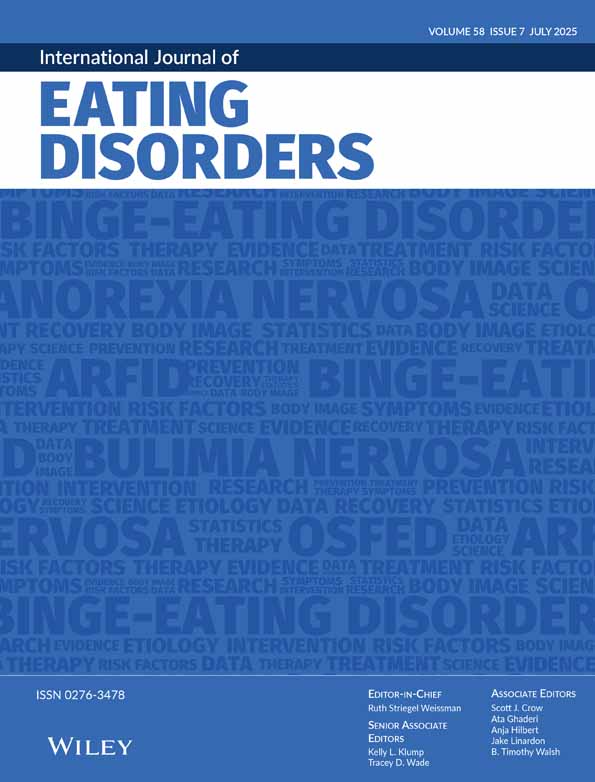Disclosure patterns of eating and weight concerns to clinicians, educational professionals, family, and peers
Abstract
Objective
The current study investigated disclosure of eating and weight concerns to professionals, peers, and family.
Method
Responses to a telephone questionnaire probing disclosure patterns were analyzed in a sample of 216 adult subjects with eating or weight symptoms, concerns, or problems.
Results
Nearly all of the sample (97.7%) had disclosed information about eating or weight symptoms or concerns to someone. Only 57% of the sample had disclosed this information to a health care professional. However, among subjects who had not otherwise volunteered information about their concerns, those who were queried were more likely than not to disclose them to health care professionals, counselors, and coaches. Disclosure to a health care professional or school counselor was associated with a higher likelihood of subsequent treatment seeking.
Discussion
These data suggest that individuals with disordered eating may be quite amenable to disclosing symptoms in clinical settings. Asking about an eating disorder may enhance detection and facilitate treatment in clinical settings. © 2005 by Wiley Periodicals, Inc.




